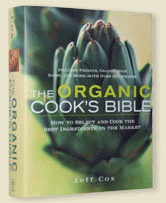The World Is Waking Up to GMO-Glyphosate Risk
Organic Lifestyle Comments Off on The World Is Waking Up to GMO-Glyphosate Risk
Brazil’s Federal Public Prosecutor has asked the country’s justice department to suspend the use of glyphosate, which is the active ingredient in Monsanto’s Roundup—the world’s top-selling herbicide, EcoWatch reports.
In addition, the prosecutor has also targeted another herbicide known as 2,4-D and the active ingredients methyl parathion, lactofem, phorate, carbofuran, abamectin, tiram and paraquat, according to GMWatch.
The news comes as another huge blow to the biotech industry, following last week’s unanimous ruling by Brazil’s Federal Appeals Court that decided to cancel the cultivation of Bayer’s Liberty Link GM Maize.
Two weeks ago, Sri Lanka ordered a ban on glyphosate due to concerns the chemical may be linked to a mysterious kidney disease that has killed thousands of agricultural workers.
The legislature in El Salvador approved a ban on dozens of agrochemicals including glyphosate last September, but the proposal has so far not been signed into law.
***
ORGANIC FARMS MORE BIODIVERSE THAN CONVENTIONAL FARMS
A new European study published in the Journal of Applied Ecology found that organic farms are able to support more species than conventional farms.
Researchers from the UK (Oxford), Sweden (SLU), and Switzerland (University of Zurich) teamed up to examine the evidence of how different agricultural methods affect the diversity of life present on farms. They found that on average, organic farms support 34 percent more plant, insect, and animal species than conventional farms.
When pollinators such as bees were looked at individually, they found that organic farms had 50 percent higher species diversity than conventional farms. “Our study has shown that organic farming, as an alternative to conventional farming, can yield significant long-term benefits for biodiversity,” said Sean Tuck of Oxford University’s Department of Plant Sciences, lead author of the study. “Organic methods could go some way towards halting the continued loss of diversity in industrialized nations.”
***
MEAT, DAIRY, EGG LABELS EXPLAINED
The following definitions that may be found on meat, dairy, and egg labels was prepared by Rastelli Direct for Healthy Eating magazine.
American Humane Certified
The American Humane Association is America’s oldest animal welfare certification program. It has implemented a specific set of standards and a number of third-party auditors who can inspect farms to see whether those standards are being met. The American Humane Association does not allow farmers to use growth hormones or antibiotics to supplement animal growth. However, they do allow the use of antibiotics to treat sick animals. In some cases, the AHA allows for de-beaking poultry and for animals to be kept in cages; albeit, the cages must be large enough to allow natural behaviors.
Cage-Free
Many people purchase cage-free eggs and poultry products because they think it is more humane. However, there is no standard definition of “cage-free.” In general, it does imply that the birds have the room to partake in natural behaviors, but it doesn’t always mean that the animals have access to the outdoors. Many cage-free claims are also not certified.
Free-Range
The free-range label is similar to cage-free except that it does ensure animals are granted access to the outdoors.
Grass-Fed
Technically speaking, the label “grass-fed” means that grazing animals are not fed grains to fatten them up for slaughter, but rather a healthier diet of natural grass and other greens. However, it also usually implies that the farm maintains other healthy practices such as local butchering and less crowded conditions. In general, “grass-fed” is a good label to look for. Grass-fed beef is nutritionally superior to grain-finished meat.
Hormone-Free
Many farmers use hormones to cause their animals to grow more quickly, thus boosting their profits. However, human consumption of hormones could increase the risk of cancer. Thus, all organic and many grass-fed farms do not treat with hormones. This doesn’t imply a restriction on antibiotic use. However, if an animal needs to be treated with antibiotics, it is no longer certifiably organic and can’t regain that status until antibiotic use has been discontinued for a prescribed period of time.
Lean/Extra-Lean
Lean meat has fewer than 10 grams of fat, 4.5 grams of saturated fat, and 95 milligrams of cholesterol per 3.5 ounce serving. Extra-lean meat has fewer than 5 grams of fat, 2 grams of saturated fat, and 95 milligrams of cholesterol per serving.
Natural
If a product is labeled “natural,” that supposedly means that it contains no artificial ingredients and that the processing does not fundamentally alter the product. To be labeled as natural, animals do not necessarily have to be raised on free-range farms or without antibiotics. In fact, there is no definition of “natural,” either by law or regulation, and so anything can be labeled natural.
Organic
There is a strict set of criteria, codified into U.S. law, that must be met for a meat to be considered organic. Organic foods cannot be irradiated, genetically modified, or grown using synthetic fertilizers or chemicals. Organic meat cannot be treated with hormones or antibiotics and animals can only consume a diet of organically grown feed. Organic meat animals are free-range.
Source-Verified
If the meat of an animal is “source-verified,” that means that a high-tech system has been used to guarantee where the meat or beef came from.
Pasture-Raised
The pasture-raised label is the best version of free-range: the animals can continuously roam freely in their natural habitat, and eat the foods they would naturally eat. Poultry as well as red meat animals can be pastured.
###












